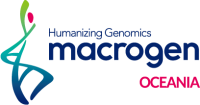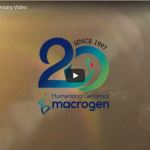Macrogen Licenses Gene Editing Technology from Broad Institute of MIT and Harvard in the USA
– CRISPR-Cas9 commercial research tool technology acquired from Broad Institute will be used to build preclinical model animals and target treatment function analysis to further gene treatment research and development
SEOUL, South Korea–Macrogen, Inc. (CEO Ji-young Moon, www.macrogen.com) (KOSDAQ: 038290), a precision medicinebiotechnology company, announced on April 5 that it has acquired a non-exclusive commercial research tool license to CRISPR-Cas9 technology from the Broad Institute of MIT and Harvard in the USA, and said that the company’s gene editing technical portfolio has been further strengthened by licensing of this technology.
Macrogen has acquired around 50 technologies, including the CRISPR-Cas9 portfolio of the Broad Institute, which will expand the application of gene editing technology to a wider range of research and businesses.
Gene editing is a technology that can involve removing, inserting or correcting genes related to diseases that are difficult to treat with conventional medicine. In particular, the CRISPR-Cas9 can specify a gene to edit, earning great regards as the most innovative technology unmatched by previous generations.
CRISPR-Cas9 is the technology most commonly used in this type of research today. CRISPR-Cas9 employs Cas9, a DNA cutting enzyme (protein) that utilizes a guide RNA to direct the CRISPR-Cas9 complex to the target gene sequence.
Macrogen aims to guide the field of new medicine development and precision medicine research and development, and plans to create new growth engines by expanding the application of the technologies in preclinical model animal building, and then expand the application to target treatments for diseases and cancer as well as gene treatment research and development.
Macrogen Chairman Jeong-sun Seo said, “Macrogen will be engaging in activities to further develop gene editing technology with the Broad Institute with the licensing of these technologies, and it will also continue to endeavor in the process of spreading CRISPR throughout the world.” He added that “Macrogen will be expanding the application of these technologies in the research and development of gene treatment as well as disease treatment, new medicine development and precision medicine to make further contributions to the promotion of health for mankind.”
Since its foundation in 1997, Macrogen has been implementing various activities in genetically engineered mouse (GEM), disease and new medicine assessment using GEM, the development of molecular diagnosis kits, target treatment research, new medicine research, and gene treatment research using stem cells and induced pluripotent stem cells for the purpose of realizing and implementing precision medicine. The company has also been continuously supporting various research and development activities by domestic and overseas life science and medicine researchers.




